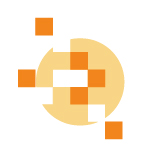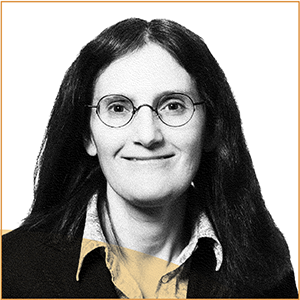Regulating the Digital Domain

Voir ce page en français
Research update
The Regulating the Digital Domain (RtDD) project is committed to advancing digital inclusion and ICT accessibility for people with disabilities. This ambitious endeavor is achieved by convening a multidisciplinary team of advisors and co-researchers, each bringing valuable insights from their respective fields. The team’s collective expertise spans lived experiences of disability, regulatory design, digital systems, policy, cultural change, communications, complex adaptive systems, and compliance. Together, they tackle six pivotal challenges, and will develop the groundwork for a regulatory system that effectively governs the digital landscape. The project’s goal is to establish robust standards and methodologies that ensure the digital domain is inclusive, equitable, and accessible for everyone.
Challenges
The RtDD team will design and propose regulatory approaches and systems that:
- address the diversity and complexity of accessibility needs, including the needs of small minorities and outliers,
- are suited to the exponential rates of change of ICT and designed to proactively prevent emerging barriers,
- support and require integrated accessibility approaches over segregated approaches to support interoperability and benefits to all users,
- support rather than constrain accessibility innovation,
- do not create incentives for the perpetuation of the problem,
- engage and empower people with disabilities and their communities to shape regulatory requirements, inform methods of meeting requirements, identify regulatory gaps, and continuously refine the regulatory system.
To date these six challenges have been addressed by a series of co-design research sessions with experts with lived experience of disability:
Co-design Research One: The Standards Development Game
Co-design Research Two: Accessibility Barriers and Regulatory Approaches for Digital Technologies
Co-Design Research Three: Re-imagining Digital Accessibility Regulations
Get involved
This and other IDRC projects include community co-researchers. You can participate in this project by joining our RtDD community on Canvas or sign up to our mailing list to get IDRC news and hear about upcoming co-research activities.
Join the RtDD community on Canvas
Sign up to learn about co-researcher opportunities
Find out more about our last co-design research activity
About the project
Regulating the Digital Domain (RtDD) project focuses on addressing the persistent challenges and disparities that people with disabilities face in accessing information and communication technologies (ICT) and digital tools.
The RtDD team will:
- work to uncover root causes of barriers,
- focus on systemic issues that support digital exclusion,
- identify potential ways to interrupt and eliminate, improve or prevent barriers from becoming worse
- enhance the accessibility of digital tools, content, transactions, and computer-mediated processes (using two or more electronic devices for a process) for people with disabilities.
The RtDD goal is to significantly improve digital inclusion and ICT accessibility for the full range of PWD (people with disabilities). To make improvements the project will address the design of a regulatory system that focuses on the challenges of regulating within the digital domain. The project findings will inform Accessibility Standards Canada on greater accessibility to digital tools, content, transactions and/or computer-mediated processes.
Informing standards
One of the critical aspects this research seeks to explore is the role of existing standards in facilitating these interventions. Standards play a vital role in shaping digital technologies’ design, development, and implementation. By understanding how standards impact accessibility interventions, the project intends to present recommendations that promote more inclusive digital innovations.
The project research will take an interdisciplinary approach. We will do this by bringing together both lived experience experts and domain experts as co-researchers. The domain experts will be from various fields including:
- policy,
- legislative design,
- access to justice,
- technology systems,
- communications,
- management,
- inclusive design,
- digital inclusion,
- economics, and
- complex adaptive systems.
Together co-researchers will design and propose regulatory approaches and systems that:
- address the diversity and complexity of accessibility needs, including the needs of small minorities and outliers,
- are suited to the exponential rates of change of ICT and designed to proactively prevent emerging barriers,
- support and require integrated accessibility approaches over segregated approaches to support interoperability and benefits to all users,
- support rather than constrain accessibility innovation,
- do not create incentives for the perpetuation of the problem,
- engage and empower people with disabilities and their communities to shape regulatory requirements, inform methods of meeting requirements, identify regulatory gaps, and continuously refine the regulatory system.
Addressing six challenges with inclusive practices and co-design
If you would like to take part in IDRC co-designs, please join the mailing list to learn about upcoming events.
Six challenges will be addressed through a series of co-designs. We will address the following challenges by engaging a wide range of stakeholders with relevant lived experiences and expertise, recognizing that the issues are complex and interrelated. The results will inform the next generation of model accessibility standards in the digital domain. The team will develop strategies that leverage the properties of the digital domain and the approaches needed to ensure greater digital inclusion for people with disabilities.
The challenges are:
How can we meet the diverse and complex accessibility needs of people with disabilities?
- People with disabilities have more varied needs than people without disabilities. Regulations tend to simplify and generalize these needs, leaving out many people who do not fit the standard criteria. Regulations also limit the potential of digital systems to adapt to individual differences. We need to design for the spectrum of accessibility needs, not just for a checklist of requirements.
How can we keep up with the rapid changes in technology and prevent new barriers from emerging?
- Technology changes faster than standards and regulations. New opportunities and risks arise constantly. Accessibility regulations often clash with the innovation drive that fuels the digital economy. Accessibility compliance is often sacrificed for speed and novelty. We need to find ways to make accessibility a priority in the changing digital landscape, and to prevent new barriers before they become entrenched.
How can we ensure integration and interoperability of digital systems and devices?
- The digital world is interconnected and interdependent. Functionality depends on compatibility. Accessibility regulations have created a separate market for specialized assistive technologies (AT) that often do not work well with mainstream products. This makes digital access more expensive, less functional, and less inclusive for people with disabilities who rely on AT. It also deprives the general public of the benefits of accessible design. We need to promote integration and interoperability of digital systems and devices for everyone.
How can we foster accessibility innovation?
- People with disabilities need innovation, perhaps more than anyone else. However, accessibility regulations often discourage innovation by imposing rigid and outdated standards. We need to encourage accessibility innovation that can address the evolving needs and preferences of people with disabilities.
How can we remove disincentives for accessibility compliance?
- Accessibility regulations have created an industry that profits from the persistence and complexity of accessibility problems. This industry also influences the development of accessibility standards. This creates a conflict of interest that undermines the goal of eliminating barriers and creating inclusive design. We need to remove the disincentives for accessibility compliance and create a culture of accessibility that benefits everyone.
How can we empower people with disabilities and their communities?
- Accessibility regulations often assume that people with disabilities are passive consumers, not active producers, of digital content and technology. They also rely on experts to prescribe, train, and maintain AT systems for people with disabilities. This limits the participation and autonomy of people with disabilities in the digital domain. We need to support people with disabilities as creators, innovators, and decision-makers in the digital world.
Reports
Regulating the Digital Domain: Co-Design 1 Results (downloadable Word document)
Regulating the Digital Domain: Co-Design 2 Results (downloadable Word document)
Regulating the Digital Domain: Co-Design 3 Results (downloadable Word document)
Partners

Boris Vukovic
The Canadian Accessibility Network & Accessibility Institute
The Canadian Accessibility Network under the leadership of the Accessibility Institute at Carleton University is mandated to bring organizations together to facilitate partnerships in specific collaboration areas under each of the five overarching domains: Research, Design and Innovation, Education and Training, Policy, Employment and Community Engagement.
About Boris’s role with RtDD: Contribute insights regarding motivations and challenges facing the accessibility field in Canada. Assist in obtaining input from accessibility professionals.

Christopher Sutton
Wavefront Centre for Communication Accessibility
Wavefront Centre for Communication Accessibility, an institute of the Deaf and Hard of Hearing, envisions a society where Deaf, Hard of Hearing and Hearing people can interact freely without communication barriers. Our mission is to serve Deaf and Hard of Hearing individuals, their families and the community by delivering innovative programs, products and solutions to achieve full communication accessibility.
About Christopher’s role with RtDD : Recruit members who are Deaf and hard of hearing to participate in co-design. Help disseminate project drafts for review and feedback. Evaluate the accessibility of the research process for persons who are Deaf and hard of hearing. Review project outputs.

Emile Tompa
Inclusive Design for Employment Access / Institute for Work and Health, McMaster University
Inclusive Design for Employment Access (IDEA) is a social innovation laboratory focused on helping create stronger and more diverse labour markets that include persons with disabilities, through knowledge to practice. We develop evidence informed tools and resources through co-design with partners that help advance workplace capacity for recruitment, hiring, onboarding, retention, mentorship and promotion of persons with disabilities across the full range of employment opportunities.
About Emile’s role with Rtdd : Contribute insights regarding policy, practice, compliance, and effective strategies as they relate to digital accessibility and employment of persons with disabilities.

Heather Walkus
Council of Canadians with Disabilities (CCD)
CCD is a pan-Canadian organization of people with disabilities. CCD has worked to find solutions and innovative ways to support the full and equal citizenship of people with disabilities. CCD unites the voice of Canadians with disabilities to defend and extend the equality rights of persons with disabilities through public education, advocacy, research, litigation, and partnerships.
About Heather’s role with RtDD: Support member organizations across Canada to recruit members with disabilities to participate in co-design. Assist in reaching out to Indigenous communities. Help disseminate project drafts for review and feedback. Provide insights regarding the need for capacity building within member organizations to participate in digital inclusion efforts. Recruit co-designers and review project outputs.

Jenelle Rouse
Black Deaf Canada (BDC)
BDC has a community-building focus where it aims to increase network of Black Deaf individuals across Canada to increase a visible representation. BDC commits to create and provide community-based, informative resources, strategies, and opportunities for Black Deaf Canadians (and those with additional disabilities). BDC’s mandate is to explore different ways of educating the hearing society about accessibilities, Deaf intra/intercultural experiences and contexts, so the society can better serve Deaf Black individuals, including Indigenous, and Peoples of Colour.
About Jenelle’s role with RtDD : Recruit Black Deaf members to participate in co-design, help disseminate project drafts for review and feedback, recruit co-designers and review, and review project outputs.

Jim Tokos
Canadian Council of the Blind (CCB)
The CCB works to improve the quality of life for persons living with vision loss through awareness, peer mentoring, socializing, sports & recreation, advocacy, health promotion and illness prevention. CCB’s community-based model offer programs to assist those people living with vision loss, create awareness of vision issues to the public and government. Recently, the CCB has undertaken proactive programs such as mobile eye health and training for employment. The CCB partners with a number or local, provincial, national and international organizations.
About Jim’s role with RtDD: Recruit members with vision loss to participate in co- design, help disseminate project drafts for review and feedback, recruit co-designers, and review project outputs.

Joelle Robinson
Manitoba League of Persons with Disabilities (MLPD)
The MLPD is a united voice of people with disabilities, and their supporters, that promotes equal rights, full participation in society, and facilitates positive change through advocacy and public education.
About Joelle’s role with RtDD : Recruit members with disabilities, especially in rural and remote areas, to participate in co-design. Help disseminate project drafts for review and feedback.

Kerri Joffee
ARCH Disability Law Centre
ARCH Disability Law Centre is a specialty legal clinic that practices exclusively in disability rights law. ARCH is dedicated to defending and advancing the equality rights, entitlements, fundamental freedoms, and inclusion of persons with disabilities in Ontario.
About Kerri’s role with RtDD: Provide insights regarding legal challenges faced by persons with disabilities and the relative effectiveness of regulatory approaches. Assist in legal interpretation and determining viability of project co- design approaches.

Lori Vaanholt
L’Arche Canada
Across Canada and around the world, L’Arche creates communities of friendship and belonging. In L’Arche, people with and without intellectual disabilities live, work, learn, and grow together. L’Arche demonstrates that when persons with intellectual disabilities take their place at the table, they contribute to a more just, compassionate, and vibrant world for all.
About Lori’s role with RtDD : Recruit members with intellectual disabilities to participate in co-design, help disseminate project drafts for review and feedback, recruit co-designers, and review project outputs.

Mahadeo Sukhai
Canadian National Institute of the Blind Foundation
The Canadian National Institute of the Blind Foundation (CNIB Foundation), a non-profit organization, delivers programs and advocacy that empower people impacted by blindness to live their dreams and tear down barriers to inclusion.
About Mahadeo’s role with RtDD: Recruit members who are blind to participate in co- design, help disseminate project drafts for review and feedback, recruit co-designers, and review project outputs.

Michael Bach
Institute for Research and Development on Inclusion and Society (IRIS)
Informed by the systemic exclusion that people with intellectual and other disabilities and marginalized groups face, IRIS works to seed and support transformative social development. Guided by principles of full inclusion and human rights, we conduct research to identify issues and policy options, foster social innovation to re-imagine inclusion, and strengthen capacity and leadership for transformative change.
About Michael’s role with Rtdd : Provide insight and guidance regarding the effectiveness and challenges faced by organizations serving persons with intellectual disabilities.

Paula Chapman
Ross & McBride LLP
Ross & McBride lawyers have extensive experience in settling complex cases and assisting clients in resolving conflict. Ross & McBride provide input regarding human rights law and access to justice for persons with disabilities.
About Paula’s role with RtDD: Assist in the environmental scan and assessment of compliance effectiveness of regulatory approaches.

Pina D’Agostino
IP Osgoode — Intellectual Property Law & Technology Program, Osgoode Hall Law School, York U
IP Osgoode at Osgoode Hall Law School is an independent and authoritative voice which explores legal governance issues at the intersection of intellectual property (IP) and technology.
About Pina’s role with RtDD : Provide input regarding legislative design, innovative regulatory instruments, legal interpretation of possible approaches within the Accessible Canada Act.

Shermineh Esmati
Digital Governance Council / Digital Governance Standards Institute
The Digital Governance Council (formerly the CIO Strategy Council) works through its members across the public and private sectors to strengthen trust in Canada’s digital economy by collaboratively identifying, prioritizing, and acting on digital governance opportunities and challenges.
The Digital Governance Standards Institute, part of the Digital Governance Council, is an accredited standards development body. The Institute enables greater trust and confidence in Canada’s digital systems through developing technology governance standards collaboratively across a range of stakeholders.
About Shermineh’s role with RtDD : Technical guidance for the process of standards development. Provide insights regarding motivations and challenges in complying to digital accessibility requirements by private and public sector organizations.

W. Francis Fung
March of Dimes Canada
The vision of the March of Dimes is to create a society inclusive of people with physical disabilities; the mission is to maximize the independence, personal empowerment, and community participation of people with physical disabilities.
About W. Francis’s role with RtDD: Recruit members with physical disabilities to participate in co-design, help disseminate project drafts for review and feedback.
Team
Jutta Treviranus, principal investigator
Vera Roberts
David Pereyra
Caren Watkins
Uttara Ghodke
Acknowledgements
Funded by Accessibility Standards Canada / the Government of Canada.

